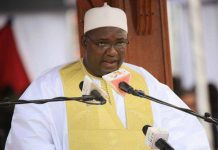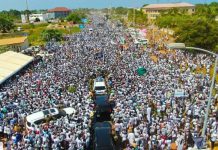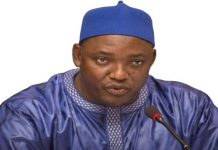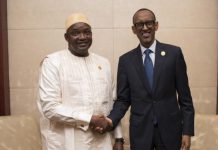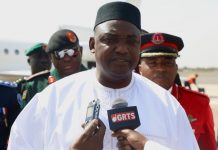Veteran national assembly member Sidia Jatta of Wuli West has informed pro-democracy activists discussing constitutional and electoral reform processes that that no one, including the president can tamper with or change anything in the draft constitution to be released by the CRC.
Activists had expressed concern at the meeting that if certain aspects in the draft do not favor the President, such as education eligibility, he may be tempted to change it.
The meeting is organized by Think Young Women in partnership with Law Hub Gambia and financed by International Republic Institute.
The country representative of West Minister Foundation for Democracy (WFD) Madi Jobarteh has suggested the possibility of President Adama Barrow changing certain provisions in the draft constitution.
“I am worried the president could be compelled to change certain provisions such as the academic qualifications which could possibly suggest that before one contests for President one must acquire a bachelor’s degree. This is why we should read the draft to ascertain that our views and opinions are captured and I hope that our president will not change the draft. That is a matter we need to be concern with, because that is not reflected on the constitutional review Act,” he said.
In his contribution, the honorable Sidia Jatta took time to clarify the points raised by the activists: “The president cannot change anything in the New Draft Constitution and the beauty about the current constitution is that it will be published. When the draft is submitted to the president he will look at it and then submit it to the national assembly. So the national assembly only looks at it after which the IEC would refer it to the nation for referendum. It is only after when people voted on it that it will become a constitution and then the national assembly will have the possibility to amend it where necessary. But the national assembly too cannot amend the draft before the referendum,” he explained.
He further said the assembly cannot also amend entrenched clauses like Chapter 4 of the current constitution, which are the fundamental rights and freedoms.
“But apart from that the national assembly in collaboration with the president can amend the constitution. When we send a bill to the president to assent; all he has to do is to look at it and if there is anything else he disagrees with, he writes his comments and sends back the bill to the national assembly. The IEC will refer the same bill to the country for referendum,” he added.
Hon Jatta also raised concerns over the D1M requirements for registering a political party, adding that the provision is discriminatory. He said the increase is only meant to enrich the IEC.
Satang Nabaneh, founder and editor, Law Hub Gambia said the meeting is meant to provide the platform to different stakeholders to discuss the constitutional and electoral reform processes.
She said the meeting also gives the stakeholders the opportunity to discuss about what next after the New Constitution is submitted to the president.


